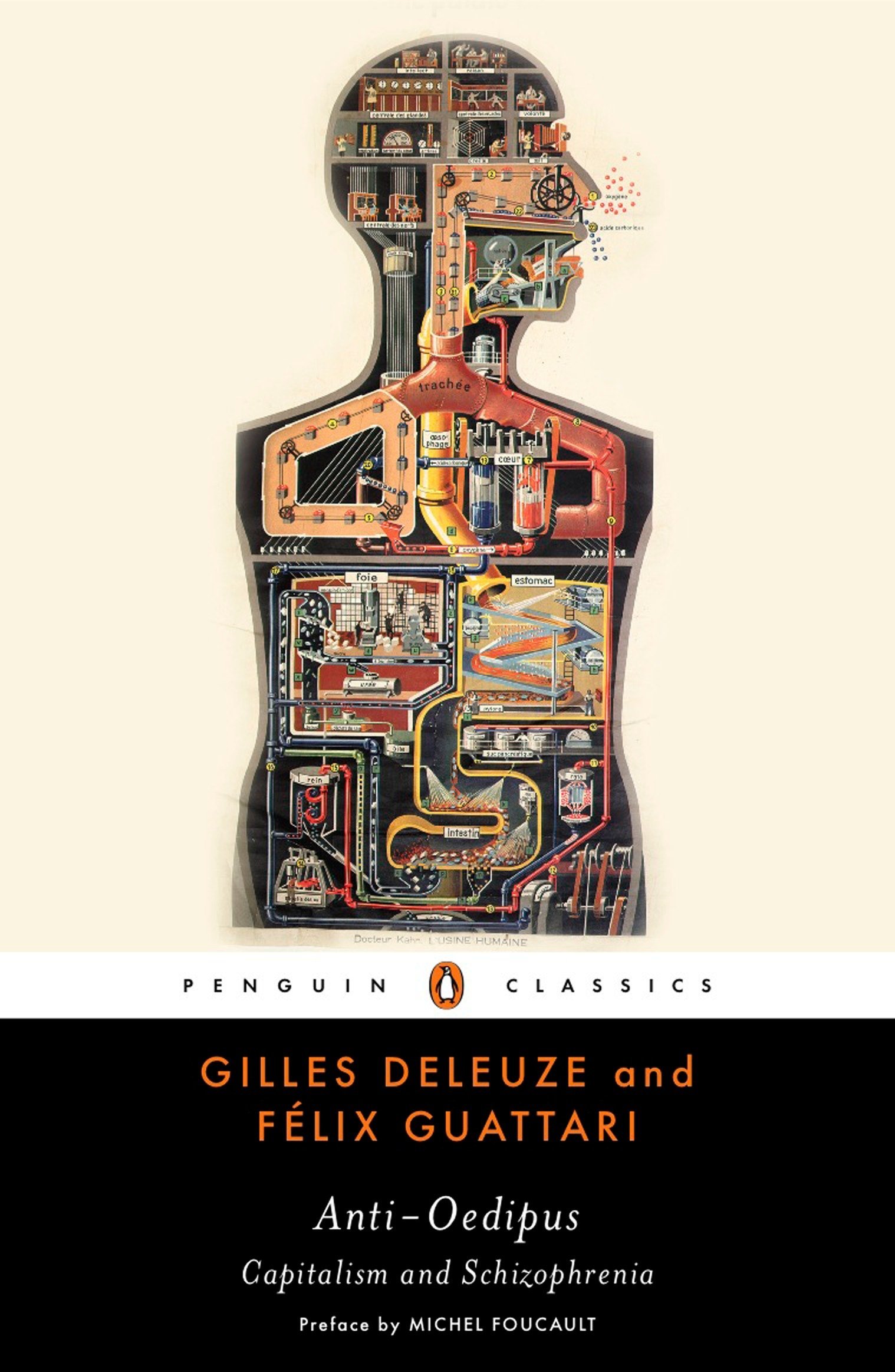
Anti-Oedipus: Capitalism and Schizophrenia
Gilles Deleuze, Félix Guattari, Robert Hurley, Mark Seem, Helen R. Lane, Michel Foucault
Publisher
Penguin Books Ltd
Publication Date
5/26/2009
ISBN
9780143105824
Pages
432
Categories
About the Author

Gilles Deleuze
Questions & Answers
Deleuze and Guattari argue that desire and social production are interconnected, with desire being the unconscious of social production. They challenge traditional psychoanalytic and Marxist theories by positing that desire is not solely a product of individual psychology or economic structures but rather a force that permeates both. They reject the Freudian concept of desire as a lack and the Marxist focus on economic determinism. Instead, they emphasize the flows and multiplicities of desire, viewing it as a productive force that can disrupt established orders. Their "schizoanalysis" seeks to understand desire in its non-neurotic and non-oedipal forms, emphasizing the importance of collective subjectivity and the potential for a revolutionary politics of desire. They argue that desire is explosive and capable of dismantling social sectors, suggesting a more dynamic relationship between desire and social change than traditional theories propose.
Deleuze and Guattari redefine the concept of the unconscious as a dynamic and productive force, distinct from Freud's Oedipal framework. They argue that the unconscious is not a repository of repressed desires and memories, but rather an active participant in social processes and desire. They emphasize the role of "desiring-production," where desire is not a lack but a force that shapes reality. The unconscious is not bound by the law or the signifier; instead, it operates through flows and partial objects, creating connections and disjunctions that escape the constraints of the Oedipal structure. This redefinition allows them to explore the role of desire in social relations and revolution, emphasizing the importance of breaking free from the Oedipal yoke and fostering a collective subjectivity that is anti-fascist and anti-egoic.
The concept of 'desiring-machines' in Deleuze and Guattari's analysis is crucial as it challenges traditional psychoanalytic and Marxist frameworks. These machines represent the flows and processes of desire, emphasizing its productive nature rather than as a lack or drive. They are not limited to the individual but encompass social relations and structures. Desiring-machines are dynamic, deterritorialized, and capable of disrupting established orders, reflecting the authors' belief in the potential for revolutionary change. By focusing on desiring-machines, Deleuze and Guattari highlight the importance of understanding desire as a force that shapes both individual and collective experiences, offering a more nuanced perspective on social relations and the potential for transformative politics.
Deleuze and Guattari critically analyze the Oedipus complex, arguing that it is a fundamental element of psychoanalysis and society. They claim that the Oedipus complex is a mystification that confines desire within familial boundaries, reinforcing social structures and power dynamics. They argue that psychoanalysis, by focusing on the Oedipus complex, perpetuates familialism and represses desire, leading to neurotic and oppressive behaviors. They propose an alternative approach, "schizoanalysis," which seeks to free desire from the Oedipal framework by exploring the flows of desire and the body without organs, emphasizing the importance of collective subjectivity and anti-fascist politics. They argue that the Oedipus complex is a limit to both desire and social production, and that its critique is essential for a revolutionary politics of desire.
In Deleuze and Guattari's project, schizoanalysis plays a crucial role in transforming society and politics by challenging traditional psychoanalytic and social structures. It seeks to dismantle the Oedipal complex and the ego, which they view as oppressive forces. Schizoanalysis focuses on the "schizo," or the schizophrenic, as a model for breaking free from these constraints, emphasizing the importance of desire and flows over fixed structures.
The process involves deterritorializing desire, freeing it from the Oedipal codes and neurotic territorialities, and fostering a collective subjectivity. This approach encourages the multiplication and connection of groups, promoting new social arrangements and a politics of desire that transcends individual beliefs and the heroism of the ego. Schizoanalysis also aims to uncover the unconscious libidinal investments in social and political spheres, revealing the underlying mechanisms of power and repression. Ultimately, it seeks to create a new, non-fascist society where desire and social production coexist harmoniously.